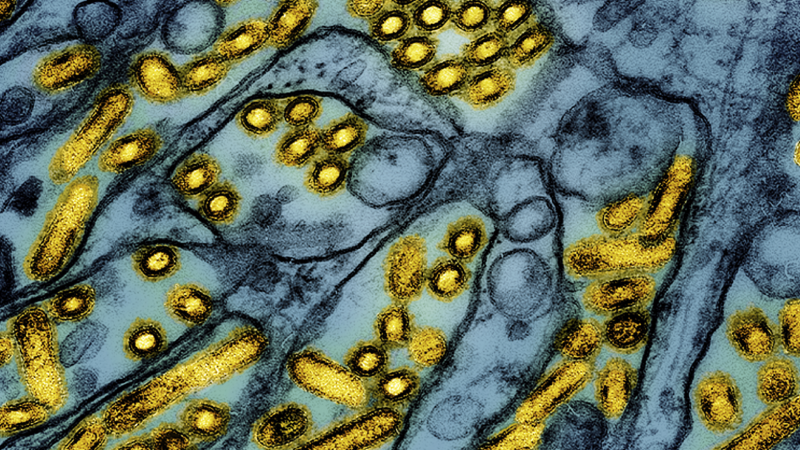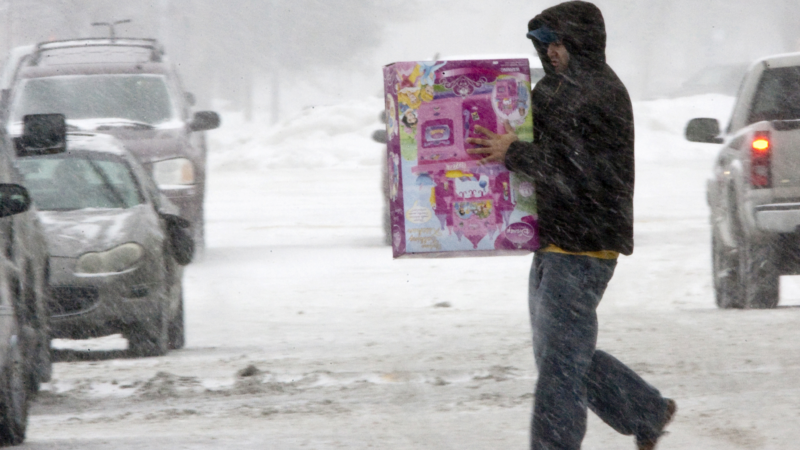The CDC has confirmed the first severe case of bird flu in a human in the U.S.
Federal health officials are addressing the first severe case of bird flu detected in a human during the U.S. outbreak.
Louisiana health officials initially reported the infection last week, saying a person was hospitalized after being exposed to sick and dead birds in backyard flocks.
On Wednesday, the Centers for Disease Control and Prevention shared their findings that indicate the H5N1 virus responsible for the illness belongs to a genetic lineage that’s circulating in wild birds and poultry — different from what’s spreading in dairy cattle and driving the majority of infections in agricultural workers.
In the U.S., more than 60 people have been infected so far, although some research suggests the official tally may be an undercount.
The illnesses linked to dairy cattle have largely led to mild illnesses in humans.
The version of the virus in the Louisiana case is the so-called “D1.1 genotype.” It has previously popped up in poultry workers in Washington state, who developed mild symptoms after testing positive in October. More recently, however, a teenager in British Columbia was hospitalized after contracting this D1.1 strain of the virus.
Canadian health officials were unable to figure out how that person was infected.
The case in southwest Louisiana was detected during routine flu surveillance and eventually sent to the CDC for confirmation. There’s no indication the person spread bird flu to others, and the case doesn’t change the CDC’s assessment that the risk to the general public remains low.
Still, the hospitalization is a reminder that bird flu has a well-established history of leading to severe illness and death over the past 20 years in other countries, Dr. Demetre Daskalakis with the CDC, told reporters on Wednesday during a press call.
Daskalakis said his agency is doing additional sequencing to look for any worrying changes in the virus that could signal it’s evolving to better infect humans or cause more severe disease.
Scientists were concerned that the case in British Columbia exhibited certain mutations that could spell trouble, although more research was needed to understand the exact implications.
Daskalakis referred reporters to Louisiana officials conducting the investigation into the case for further details on how the person caught the virus and their symptoms.
As with the Louisiana infection, most cases have been linked back to some kind of exposure to sick animals. Dairy cattle harbor high loads of virus in their milk and that’s suspected to be causing infections in farm workers. Those working with infected poultry can also catch the virus.
However, several cases have cropped up in the U.S. that can’t be tracked back to infected farm animals, including in California and Missouri.
“Infections without a clear source of exposure do occur, neither these cases nor the cases with known animal or animal products exposure have resulted in human to human transmission,” said Daskalakis.
Dreaming of a white Christmas? There’s hope, depending on where you live
A few parts of the country may get a white Christmas in 2024, but the majority will not. And in the future, shifts in weather patterns driven by global warming may make them even less likely.
Turkey looks set to play an outsize role in shaping the new Syria after Assad
As the world watches Syria grapple with the aftermath of Bashar al-Assad's brutal regime and the formation of a new government, one neighbor has emerged as having great influence over the new Syria.
The Federal Reserve lowers interest rates again — but hints at fewer cuts next year
The Fed lowered interest rates by a quarter percentage point — but policymakers are projecting fewer rate cuts next year as inflation remains elevated.
In 2024, our TV critic was grateful for fantastic shows and familiar faces
Fresh Air critic David Bianculli watches more TV than anyone he knows. He found it impossible to come up with a top 10 list this year — and is reveling in the abundance of exceptional shows.
Genital herpes is a ‘forgotten’ virus. But that doesn’t mean it’s gone away.
Over 800 million people have genital herpes — and in many cases the virus can flare up over a person's lifetime, causing painful symptoms. So why doesn't the world pay more attention?
Supreme Court agrees to review TikTok ban-or-sale law
The high court said Wednesday it will review a challenge submitted by TikTok asking for the overturn of a law that could ban the video-sharing app by Jan 19.







